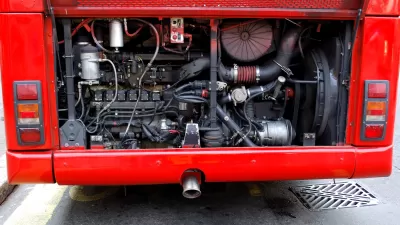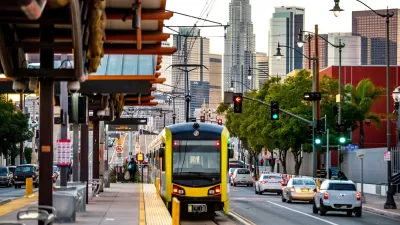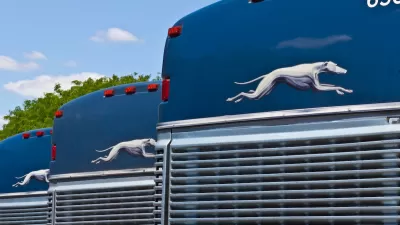"The rise in mass transit ridership should be great news. Not since the OPEC oil embargo and energy crisis in the '70s have famously car-centric Americans been so eager to shell out for a bus fare or a train ticket and leave the polluter in the driveway. Automobile transportation is one of the largest chunks of the country's carbon footprint, so the more that Americans opt for trains and buses, the more that footprint could shrink.
But the news isn't all that sunny. In fact, the mini-exodus from driving has exposed significant cracks in the country's mass transit systems, which are struggling to accommodate new riders. Having spent decades forsaking the bus and the train for the convenience and privacy of cars, Americans are now finding that the buses, streetcars, trolleys and trains that they left behind are strapped for cash, if they still exist at all.
'All across the country, public transportation systems are experiencing capacity problems,' says Virginia Miller, a spokeswoman for the American Public Transportation Association. 'Due to the high costs of fuel, systems' budgets are being severely impacted.' A survey of 115 of the association's members found that 60 percent of the systems are considering fare increases, while 35 percent are experiencing service cuts. 'It's ironic that at a time of record ridership we don't have the funding to expand public transportation systems,' says Miller."
FULL STORY: Who says Americans won't ride mass transit?

Planetizen Federal Action Tracker
A weekly monitor of how Trump’s orders and actions are impacting planners and planning in America.

Congressman Proposes Bill to Rename DC Metro “Trump Train”
The Make Autorail Great Again Act would withhold federal funding to the system until the Washington Metropolitan Area Transit Authority (WMATA), rebrands as the Washington Metropolitan Authority for Greater Access (WMAGA).

The Simple Legislative Tool Transforming Vacant Downtowns
In California, Michigan and Georgia, an easy win is bringing dollars — and delight — back to city centers.

The States Losing Rural Delivery Rooms at an Alarming Pace
In some states, as few as 9% of rural hospitals still deliver babies. As a result, rising pre-term births, no adequate pre-term care and "harrowing" close calls are a growing reality.

The Small South Asian Republic Going all in on EVs
Thanks to one simple policy change less than five years ago, 65% of new cars in this Himalayan country are now electric.

DC Backpedals on Bike Lane Protection, Swaps Barriers for Paint
Citing aesthetic concerns, the city is removing the concrete barriers and flexposts that once separated Arizona Avenue cyclists from motor vehicles.
Urban Design for Planners 1: Software Tools
This six-course series explores essential urban design concepts using open source software and equips planners with the tools they need to participate fully in the urban design process.
Planning for Universal Design
Learn the tools for implementing Universal Design in planning regulations.
Smith Gee Studio
City of Charlotte
City of Camden Redevelopment Agency
City of Astoria
Transportation Research & Education Center (TREC) at Portland State University
US High Speed Rail Association
City of Camden Redevelopment Agency
Municipality of Princeton (NJ)





























